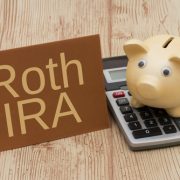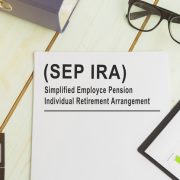Be A Venture Capitalist With A Self-Directed IRA? Despite The Economy, The NVCA Says Promise Abounds In 2012!
Be a venture capitalist with a Self-Directed IRA? American IRA-a National Provider of Self-Directed IRAs says despite the economy, a recent article released by the National Venture Capital Association (NVCA) says “Promise Abounds In 2012!”
Jim Hitt, CEO of American IRA, says “An IRA is a tremendously versatile financial instrument. It has all the advantages you get with a traditional IRA – specifically, the benefit of tax deferral and the absence of capital gains tax as a year-to year concern. Plus, you have the option of paying taxes up front if you create a Roth IRA – which then grows tax-free forever.”
Many people think the trade-off, however, is a relatively constrained investment universe of publicly traded stocks, bonds, funds and annuities. But nothing can be further from the truth.
There is nothing in the law that restricts their IRA to investing in publicly-traded securities. Experienced business people know that many of the best investment opportunities are in private equity offerings and closely-held corporations and partnerships, flying below the radar of Wall Street. Many of these companies are willing to sell shares at bargain prices to get expansion capital – and provide investors who are willing to give up some liquidity with potentially lucrative returns on invested capital.
IRAs are designed to be long-term investment vehicles. Their tax benefits add up over years. They are, in some ways, excellent vehicles for venture capital opportunities.
Advantages of Using an IRA for Venture Capital Activities
Venture capital, mezzanine injections and angel investing frequently involves emerging companies which are not yet profitable, and relatively risky. Venture capitalists typically don’t invest in these companies for income, but for the potential for large capital gains down the road.
Mr. Hitt interjects, “This makes them ideal vehicles for Roth IRAs, since capital gains tax liability is irrelevant for Roth IRA investments. If you ‘hit the jackpot’ with an emerging company, you could make your money back many times over – all tax free, in a Roth IRA.”
Depending on their jurisdiction, their investment in an IRA may qualify for some protection against the claims of creditors.
Considerations
With freedom comes responsibility. IRS rules prohibit “self-dealing,” that is, using their IRA assets to benefit them or their family before they retire. This means there are certain things they can’t do:
- They can’t buy a controlling interest in a company with their IRA to secure themselves a job.
- They can’t invest in any business they already own, or one that is owned by their descendants, ascendants or their spouses, or their advisors. They can, however, invest in their sibling’s business.
- They cannot invest in a company and then take a personal loan from it, nor can it provide a loan to any prohibited individuals specified above.
- They can’t invest more than $5,000 of new money ($6,000 for those over age 50) in the IRA in any given year. This means that their company will have to pay expenses out of earnings, or borrow to meet any unanticipated expenses. They cannot provide the capital out of pocket. However, they can roll funds into the account from another retirement accounts.
- If they invest in a partnership, they cannot have any management responsibility.
- Their IRA cannot take on any liability beyond the cost of their initial investment.
- Their IRA can borrow money, but it can only do so via a non-recourse loan: The lender can have no claim against any collateral or assets outside of the IRA itself. They cannot personally guarantee an IRA’s debt.
- Any partnership agreements must accept IRAs and qualified plans as partners.
- Under some circumstances, they can be an employee of the company, but they must be careful to avoid self-dealing. We will work closely with them and their advisors to ensure that their self-directed IRA, 401(k) or SEP plan remains fully compliant with IRS and, if applicable, ERISA requirements. Understand American IRA does not act as an advisor in these circumstances. Venture capital and the purchase and sale of businesses is a highly specialized field. In addition to American IRA’s administrative services, they should retain the services of competent professional investing, tax and legal advisors.
- Their IRA may actually have some tax liability. Even though IRAs don’t generate income taxes until money is withdrawn, and capital gains taxes are irrelevant, their IRA could generate unrelated business income tax liability (UBIT). American IRA does not provide individualized tax advice. For information about how unrelated business income tax may affect their specific circumstances, they should seek the services of a competent tax expert, in addition to the administrative services of American IRA.
American IRA’s Unique Advantages
Self-direction of retirement accounts is a specialized field of financial planning, frequently involving some highly technical rules that are unique to IRAs and other retirement plans, and that only come up in a self-direction context. Most traditional companies and advisors do not have the expertise to help guide their clients through the ins and outs of keeping a self-directed portfolio in compliance with applicable laws . Although American IRA is not an advisor, attorney, or qualified tax professional, we work closely with their advisors to make the process as seamless as possible.
Mr. Hitt cautions, “Failure to strictly observe the rules and regulations governing self-directed retirement accounts may result in unwanted taxes and penalties – including the disallowance of an entire IRA. It’s important to partner with a third-party administrator that has expertise specific to self-direction . American IRA is not an advisor in these transactions. You will always need to have professionals assist in assessing the legal and tax consequences of making these types of investments.”





